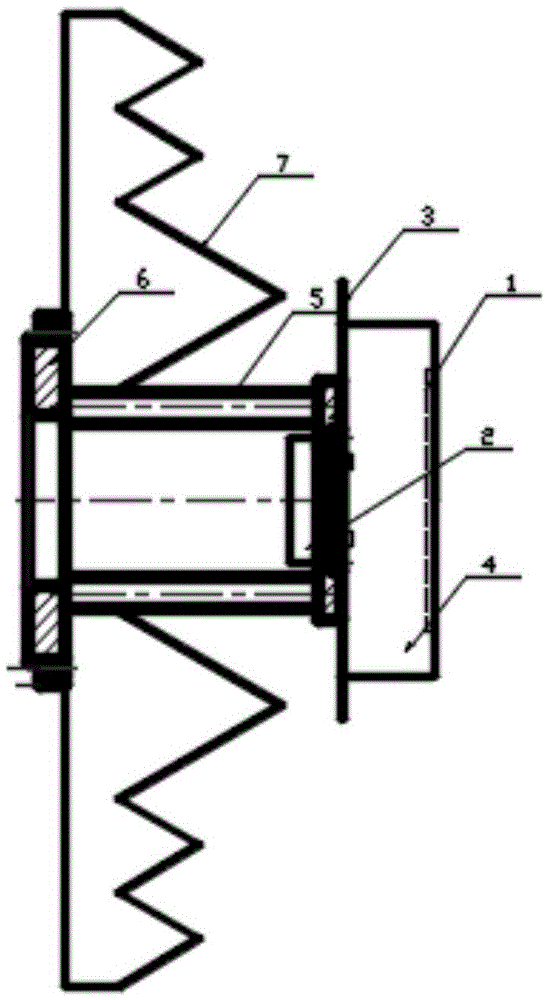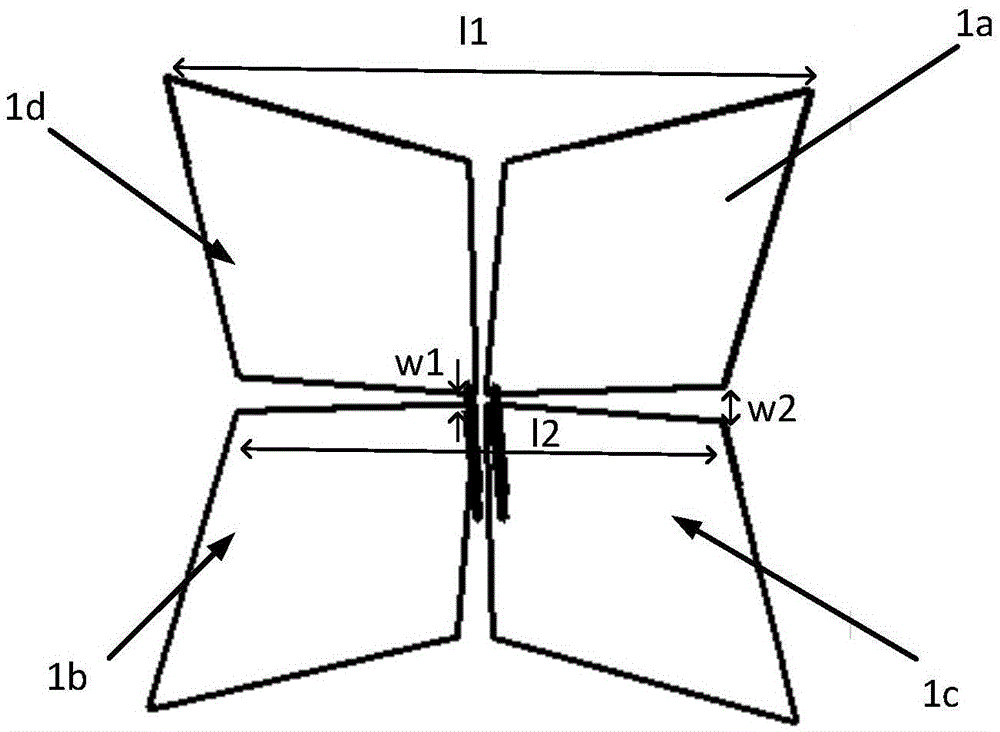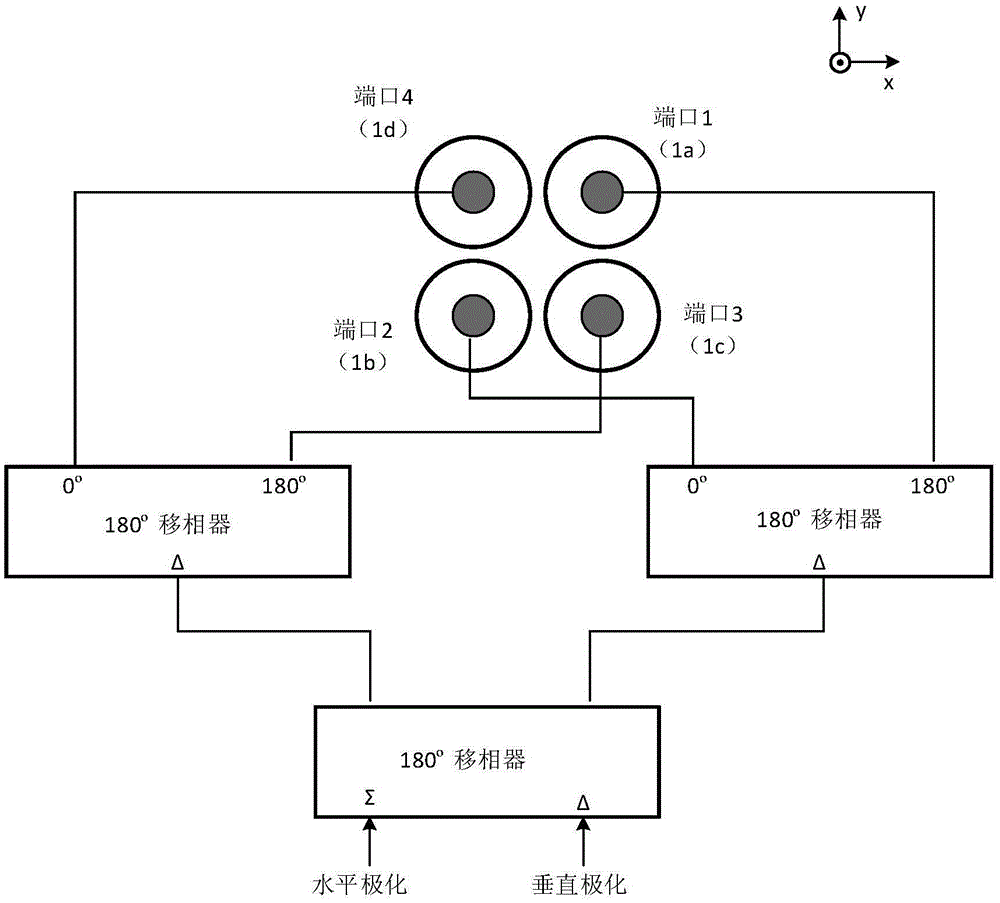Feed network-based low-frequency compact range feed source
A technology of compact field feed source and feed network, which is applied in the direction of circuits, electrical components, antenna supports/installation devices, etc., which can solve the problems affecting the ease of use of the antenna, the difficulty of installing the feed source, and the large size of the antenna, etc., to achieve irradiation Increased efficiency, mitigation of high impact, and shortened length effects
- Summary
- Abstract
- Description
- Claims
- Application Information
AI Technical Summary
Problems solved by technology
Method used
Image
Examples
Embodiment Construction
[0023] The present invention will be further described below in conjunction with the accompanying drawings and specific embodiments.
[0024] The idea of the present invention is as follows: the present invention aims at the long problem of the long axial dimension of the traditional feed horn antenna, proposes the scheme that realizes the miniaturization of the feed source with the feed network, adopts ultra-wideband orthogonal dipole antenna 1 as the surface of the ellipse cylinder 4 excitation, the position of the ultra-wideband orthogonal dipole antenna 1 is approximately flush with the position of the elliptical cylinder mouth 4, on the one hand, it ensures that the input impedance of the feed source is close to 50Ω, and on the other hand, it ensures that the radiation pattern close to an elliptical beam. When feeding with two different polarizations, the radiation pattern of the feed horn is approximately the same. The introduction of multiple 180° phase shifters grea...
PUM
| Property | Measurement | Unit |
|---|---|---|
| Length | aaaaa | aaaaa |
Abstract
Description
Claims
Application Information
 Login to View More
Login to View More - R&D
- Intellectual Property
- Life Sciences
- Materials
- Tech Scout
- Unparalleled Data Quality
- Higher Quality Content
- 60% Fewer Hallucinations
Browse by: Latest US Patents, China's latest patents, Technical Efficacy Thesaurus, Application Domain, Technology Topic, Popular Technical Reports.
© 2025 PatSnap. All rights reserved.Legal|Privacy policy|Modern Slavery Act Transparency Statement|Sitemap|About US| Contact US: help@patsnap.com



